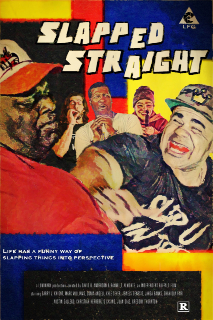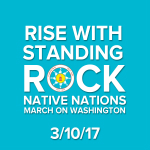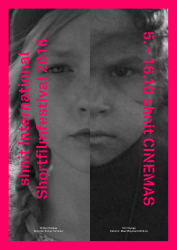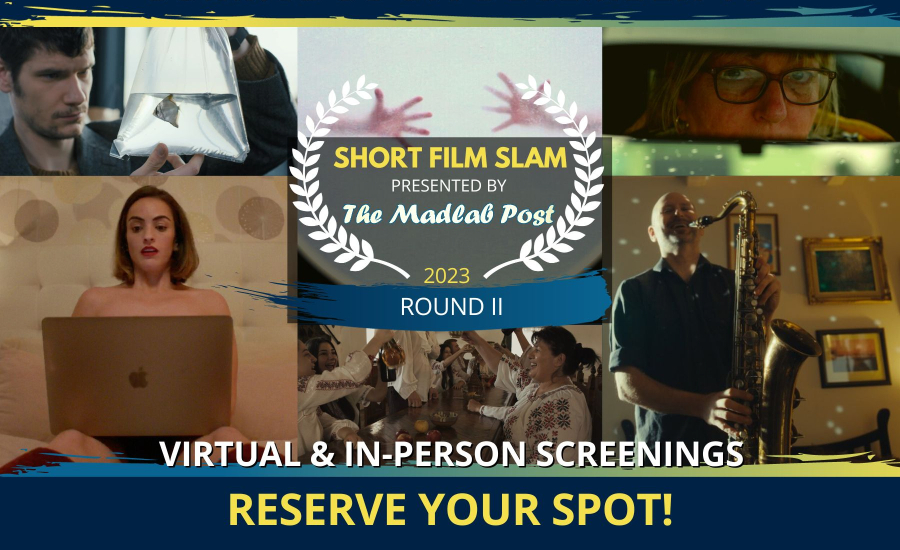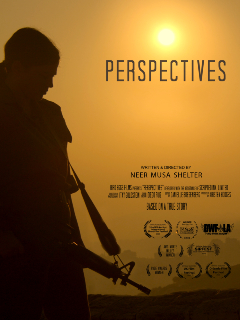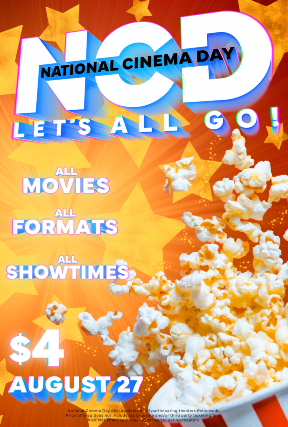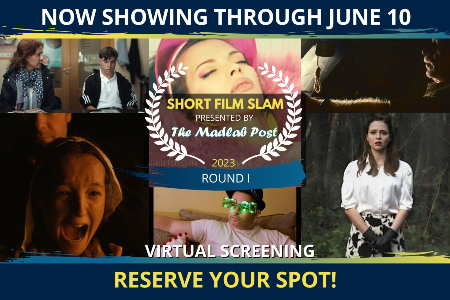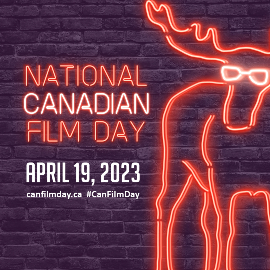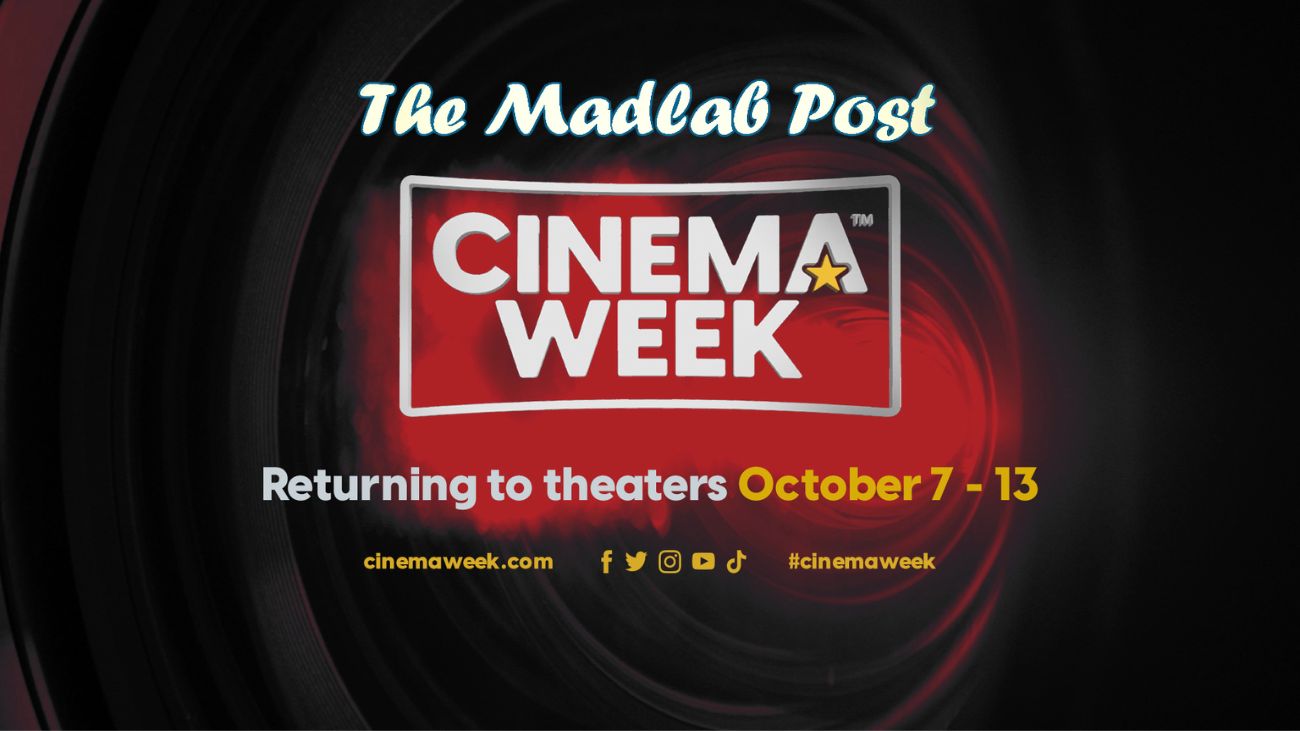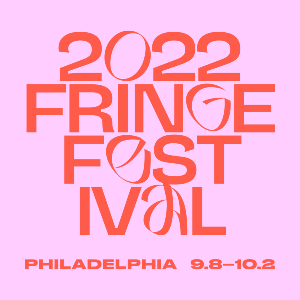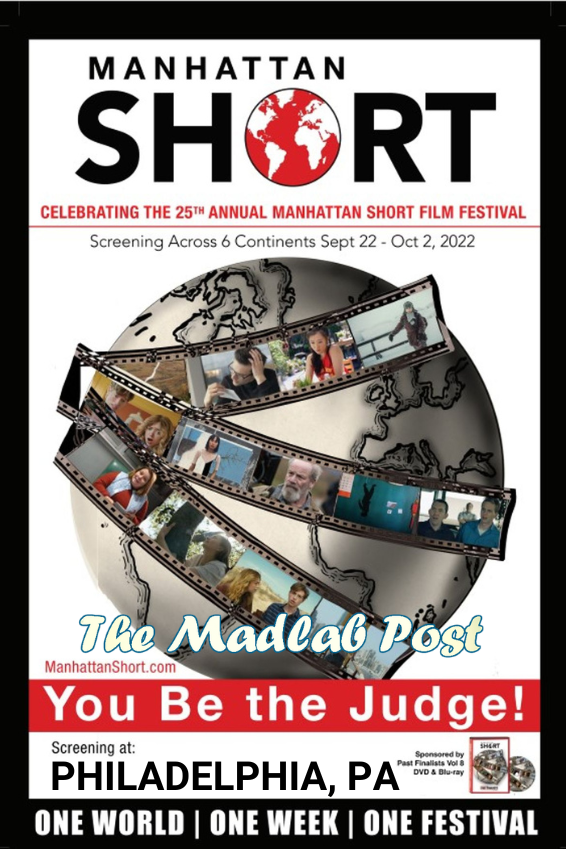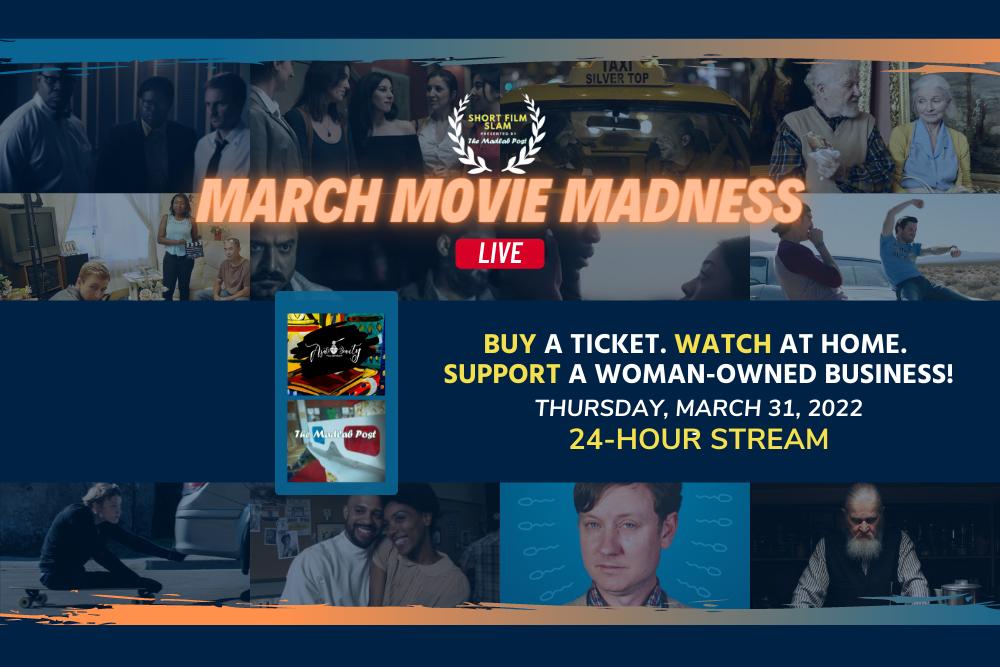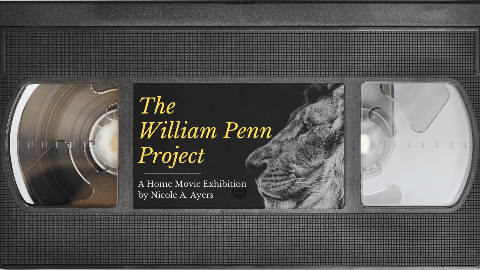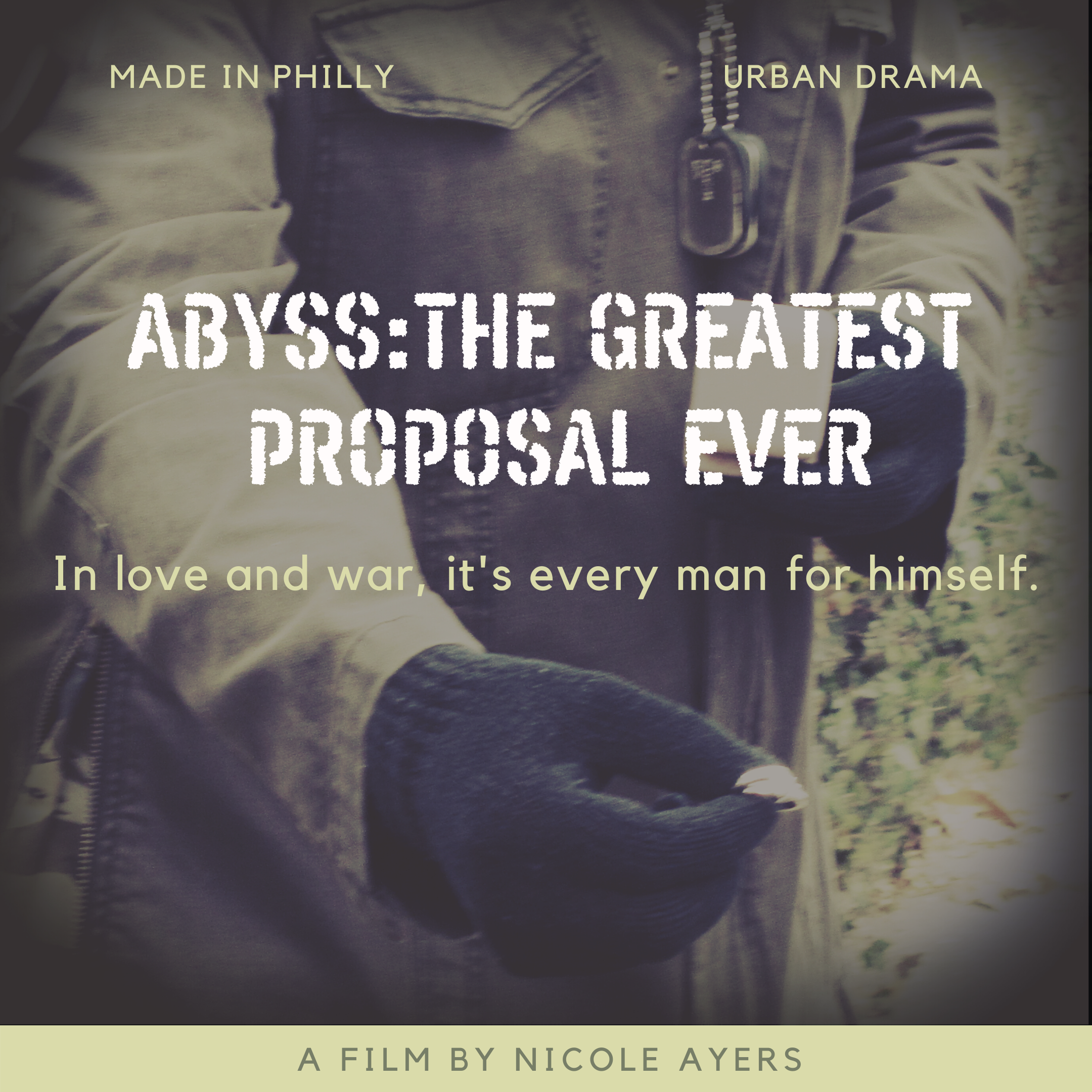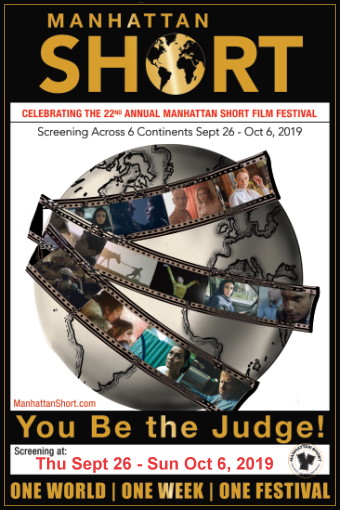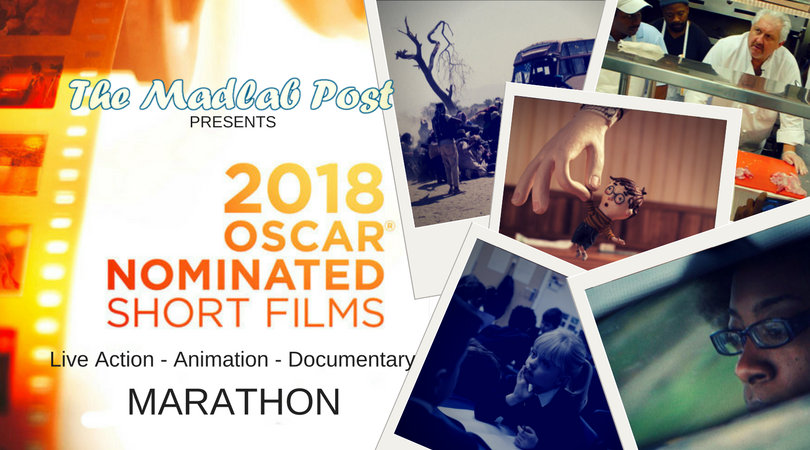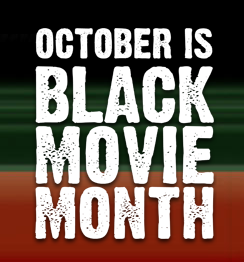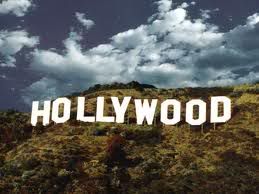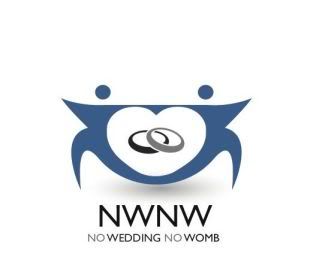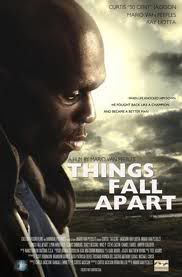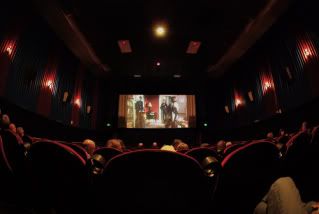Why I Have 83% Support for Black Movie Month #BMM #iSupport #indiefilm #blackfilm #atthemovies
 Thursday, October 6, 2011 at 2:38PM
Thursday, October 6, 2011 at 2:38PM What will it take to get me to 100%? Less begging and more control of how our films get noticed. Producer and distributor Film Life and Black Enterprise magazine are teamed up to designate October as Black Movie Month with six actions that African-American movie goers can do right now and throughout coming weeks in support of black films. I like what these two entities are doing and appreciate the dialogue that Black Movie Month can open up for African-American audiences, so October is a month that I will do the following:
#1 Pledge to pay admission for another person to attend the screening of a black film during the month of October.
#2 Buy a black film on DVD to give as a prize to one reader of this blog, The Madlab Post.
#3 Read black film publications Shadow and Act more often to stay informed on black films, because I admit...I tend to read more either mainstream or general publications that discuss film as a whole rather than a specific area of it.
#4 Discuss the effects of stereotypical images portrayed in film and how to either lower their presence or at the very least, get more positive images on screen to offer a balance between the two, with friends, relatives, associates and strangers that I am around throughout this month.
#5 Raise funds to make the short film that I delayed back in January and go into pre-production on the feature that I've had on the shelf for years or at the very least, attempt a 48-hour weekend short AND support (see #1) the work of another black filmmaker.
but I will NOT, I repeat, will NOT sign a petition that asks Hollywood Studios to make, release and promote movies that feature more diverse storylines for African-Americans and movies that feature African-Americans in leading roles.
I am not in favor of petitioning Hollywood for inclusion of positive and/or non-stereotypical roles for African-Americans because it is counterproductive to what those who are seeking this want to achieve.
Whoever or whomever is footing the bill for the movies that are currently being offered in movie theaters can produce whatever stories and lead with any group of actors they want.
It all comes down to dollars and cents, but c'mon people.....I know most of us already know that.
So why waste time and energy trying to convince someone or a group of companies to change the way they do business when we can use that same amount of effort to get the kind of stories that we want to be told and the kind of actors that we want to bring those stories to life the necessary backing and tools to do so?
It is pure nonsense to whine to Hollywood studios about the marginalized treatment that us given to black film and the scarcity of quality stories with African-Americans in leading roles, as if these things don't exist....because they do.
The actions numbers 1 through 5 that people are urged to take in celebration of or in support of Black Movie Month proves such existence of black films.
I am not urging anyone to refrain from signing the petition. Men and women of all races, colors, creeds, ethnicities and cultures can do what you desire for Black Movie Month. However, I know for sure that there is another way to watch more diverse stories with African-Americans on film.
In the 1960s, Melvin Van Peebles showed us another way when he found success making films out of the country and today, Ava DuVernay is spearheading another path for black films that are nothing like the offensive Hollywood fare, with the African-American Film Festival Releasing Movement (AFFRM)....so no one rallying against Hollywood's current way of doing things can convince me that we are not being represented enough nor represented properly.
Hollywood has the money, right? Well then my dearest, fellow African-Americans, please understand that this means they make the rules....at least in their neck of the woods. The studios do not have to hire Idris Elba or Regina King if they don't want to. They can hire Brad Pitt, Tom Cruise and Angelina Jolie if they so desire and there is nothing wrong with these decisions because....wait for it.....wait for it.....it is THEIR money.
The $513 million that African-Americans spend annually on movies despite having prominent representation in less than 1% of films released this year does not show that Hollywood needs to make more black films. These numbers actually show the opposite....that the African-American movie going audience is satisfied with what is available at their local cineplex, or it shows Hollywood studios that at the very least, African-Americans are willing to spend money on entertainment even if they are underrepresented and/or misrepresented in the films being released.
Speaking of misrepresentation, Tyler Perry is the highest earning man in the entertainment industry right now. At $130 million, Perry surpasses critically acclaimed director Steven Spielberg and powerhouse producer Jerry Bruckheimer (two of the most successful people in entertainment) in earnings.
It is then no surprise that his movie, "Tyler Perry's Madea's Big Happy Family" is one of the only four films released this year that Black Enterprise says feature African-Americans in leading roles or producing positions. If Perry is the highest paid producer and director in Hollywood, then somebody is....correction, a lot of audiences are contributing to his high box office success and I'd be willing to bet that it's not exclusively white, Asian nor Hispanic audiences who are filling those theater seats on opening weekend.
Tyler Perry, an African-American man who makes films by, about and starring us (which fixes the underrepresentation claim in the petition to studios, by the way...I'm just saying) is, or appears to be a dominant figure in Hollywood right now due to the support of an African-American movie going audience, despite the fact that his movies feature the very characters, stereotypes and messages that people are asking entertainment industry studios to ease up on....Hello pot, meet kettle!
Black Movie Month is a powerful and moving way to support black filmmakers and their films as well as a great start in getting African-American audiences to seek out and learn more about DVDs and screenings that are available to us.
However, members of this audience who are making arguments about unfair representation in Hollywood and blaming studios for the small selection of black film releases while still supporting films that do not help their cause are creating their own problem with what gets top cinema billing.
Check yourself, your wallet and your own African-American leaders in the film industry first, before you go calling foul to the green-lighting boys at the Hollywood gates.
Or better yet, support the black films that ARE available, wherever they are....on DVD, local arthouse theaters, galleries, hosted screenings, film festivals, television, iTunes, Video-on-Demand, Netflix, Blockbuster, Redbox or the local library...wherever you find them (NO Bootlegs, please!), whenever you can.
If you don't know where to start, here are three films that I recommend:
"Night Catches Us" directed by Tonya Hamilton
Now available on DVD and Video On Demand. Visit the website for more information.
"Make a Movie Like Spike" directed by Jamil Walker-Smith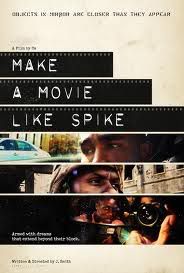
Screening in select cities. Visit the website for this film to learn more information.
"Mooz-Lum" directed by Quasim Basir
Screening at colleges and in select cities. Also available for Pre-Order on DVD. Visit the website for more information. This is the only movie on this list that I did not watch yet.
Of all who are encouraging people to sign the Hollywood studios petition for better representation of African-Americans on film and of all who have already signed the petition, I wonder how many are working on other avenues to reach their goal such as opening movie theaters, moving into distribution, making deals with black owned cable networks or starting their own, developing a collaborative network of film screening venues and retail outlets that sell black film DVDs to consumers and how many, I mean really, are supporting black films available in the digital space through iTunes, the filmmaker's websites, e-commerce stores and the like. I'd be willing to bet that it's less than half.
Me, sign a petition asking Hollywood to change their ways and support more diverse work featuring African-Americans when my own fellow man and fellow woman seem to stop their efforts for improvements in this area at a name on a letter to the so-called powers that be?
No Thanks.
What are YOUR thoughts on petitioning Hollywood studios on elements of film that matter to you?
Are petitions worth the effort?
Technorati Tags: black+movie+month, black+movies, october+movie+month, october+black+movie+month, bmm, i+support+black+film, support+black+film, black+enterprise+movie+month, film+life+movie+month, hollywood+petition, black+movie+month+petition, black+films+to+watch, support+black+films







